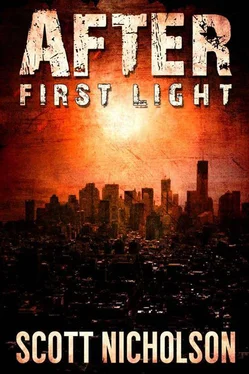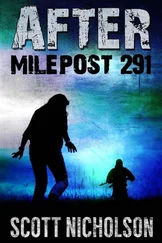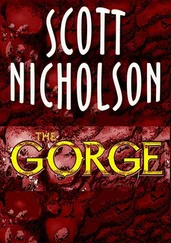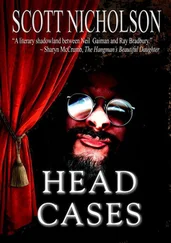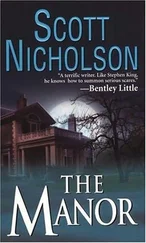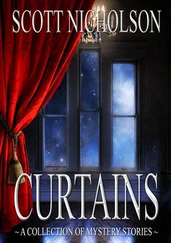Scott Nicholson - First Light
Здесь есть возможность читать онлайн «Scott Nicholson - First Light» весь текст электронной книги совершенно бесплатно (целиком полную версию без сокращений). В некоторых случаях можно слушать аудио, скачать через торрент в формате fb2 и присутствует краткое содержание. Год выпуска: 2013, Издательство: Haunted Computer Books, Жанр: sf_postapocalyptic, Ужасы и Мистика, на английском языке. Описание произведения, (предисловие) а так же отзывы посетителей доступны на портале библиотеки ЛибКат.
- Название:First Light
- Автор:
- Издательство:Haunted Computer Books
- Жанр:
- Год:2013
- ISBN:нет данных
- Рейтинг книги:3 / 5. Голосов: 1
-
Избранное:Добавить в избранное
- Отзывы:
-
Ваша оценка:
- 60
- 1
- 2
- 3
- 4
- 5
First Light: краткое содержание, описание и аннотация
Предлагаем к чтению аннотацию, описание, краткое содержание или предисловие (зависит от того, что написал сам автор книги «First Light»). Если вы не нашли необходимую информацию о книге — напишите в комментариях, мы постараемся отыскать её.
A prequel to the bestselling
series that begins with
.
First Light — читать онлайн бесплатно полную книгу (весь текст) целиком
Ниже представлен текст книги, разбитый по страницам. Система сохранения места последней прочитанной страницы, позволяет с удобством читать онлайн бесплатно книгу «First Light», без необходимости каждый раз заново искать на чём Вы остановились. Поставьте закладку, и сможете в любой момент перейти на страницу, на которой закончили чтение.
Интервал:
Закладка:
Scott Nicholson
AFTER: FIRST LIGHT
CHAPTER ONE
The sun looked like a cheese pizza that had been broiled in hell’s hottest oven.
Dr. Daniel Chien frowned at the monitor, concerned less with the rippling cheese than the rising bubbles of red sauce. Each bubble erupted with a force equaling 100 billion megatons of TNT, spewing electromagnetic radiation across the solar system. Chien was intellectually aware that the pizza was really a massive star around which Earth and other planets revolved, but technology had reduced it to little more than a commercial-free reality-TV show.
Sir Isaac Newton nearly blinded himself staring at the sun, and I can do it from the comfort of my air-conditioned cubicle.
The images recorded by the Solar Dynamics Observatory were a marvel of modern technology. Not only was the space-based observatory performing a continuous, real-time monitoring of solar activity, it used an array of solar panels as its energy source. In turn, the data allowed Chien and other researchers to study the sun’s electromagnetic fluctuations, solar wind, sunspot activity, and particle radiation.
The sublime beauty of the system had lured Chien from a faculty position at Johns Hopkins. Even as a boy in Vietnam, he’d been fascinated by the sun as the giver of life. The Earth’s precarious position at just the right orbital distance counted as something miraculous, although Chien was careful to avoid debates over science and faith. To him, wonder was wonder and did not require further complications. Let the glory hounds like Newton clog the pages of scientific history while Chien and his fellow grunt workers added to the pool of knowledge bit by bit.
But his role as a researcher didn’t diminish his appreciation of solar myth. After all, there was hardly a more apt metaphor for human hubris than Icarus flying too close to the sun and having his wings melt.
The sun, as Chien liked to tell his friends, was cool.
He still took childlike delight in the real-time images of the sun captured in a variety of spectra, available to the public via the NASA website. The array of sophisticated instruments measured multiple wavelengths and offered two dozen ways to observe and measure solar phenomena. The main image was the one now commanding his attention, and although he was fully aware of the sun’s petulant temperament, he didn’t like the erratic pulsations appearing on its surface.
Somebody’s burning the pizza.
“Katherine?” he said, calling to the other on-duty researcher at the SDO’s offices in the Goddard Space Flight Center. Dr. Katherine Swain was several years his senior, a 20-year veteran of NASA, and a woman who held no romantic notions of the sun at all.
“Yes?” she said, in an annoyed tone, looking up from her laptop. She’d confided to Daniel that she was having “family problems,” and Daniel had projected a polite pretense of concern without pressing for details. Which meant avoiding her unless something important was happening.
“It looks like some irregular plasma activity.”
“We’re in an irregular phase,” she said, not clicking away from whatever she was working on. “The moon’s having its period.”
Much like a woman, or the moon, or any other natural object, the sun went through nearly predictable cycles of behavior. Solar cycles lasted about 11 years, and the study of radionuclides in Arctic ice had allowed researchers to map an accurate history of the sun across geological epochs. Although the cycles followed identifiable patterns, the general agreement was that the current cycle was among the most active on record.
“It’s not just regularly irregular,” he said. “It’s crazy.”
“Ah, here comes the big one?” Katherine teased. “Guess they should have listened to you, huh?”
As a member of a commission asked to assess the nation’s vulnerability to electromagnetic pulse attack, Chien had testified before an Armed Services subcommittee. He’d warned of the impact of massive solar flares, but his cataclysmic scenarios were pushed aside for what were considered the more-relevant dangers of low-flying nuclear missiles. The military couldn’t fight the sun, and neither could it procure billions of tax dollars by provoking the administration’s fear of the sun. Besides, terrorist threats were far sexier than probability modeling.
Last year, Chien had co-authored a report that painted a grim picture of infrastructure failure on the heels of a massive solar storm, calling it “the greatest environmental disaster in human history.” Since then, Katherine and the other SDO researchers had wryly called Chien “Dr. Doom.”
Chien had stood firm in his quiet way. Besides, it really wasn’t a matter of “if.” It was a matter of “when.”
But even Chien didn’t really expect “when” to be now .
“Look at AR1654,” Chien said.
Katherine’s keys clacked as she brought up an image on her laptop screen. “It’s only an M-1,” she said. “At worst, we could get a few radio blackouts in the polar regions. No biggie.”
“But AR1654 is aligning with the Earth. That means we will be right in the path of the plasma stream if a flare erupts.”
“And it will pass right over us. That’s why we have an atmosphere, so we’re not exposed to constant radiation. Otherwise, we wouldn’t be around to have this conversation.”
Katherine, apparently satisfied with her prognosis, resumed typing. Chien watched the image on the screen for another minute, as sauce leaked from the edge of the pizza’s crust and bulged out into space in huge, curling ribbons.
Maybe I’m no different than Newton, a sensationalistic glory hound. But he died a virgin, so I’ve got him beat there .
Chien went through the rote recording of data that occupied much of his duties, but his mind wandered to Summer Hanratty, the woman he’d been dating for the last six months. He couldn’t escape the irony of her first name, and its connotation with sunny weather had fueled their initial conversation at a colleague’s party. Maybe they were getting serious.
Heating up, huh? Well, even Dr. Doom needs a little comfort in the night.
Katherine’s clipped voice interrupted his reverie. “Did you see that?”
“See what?” Chien had flipped away from the satellite imagery to tables of temperature, X-rays, and magnetic energy.
“Check the Magnetogram,” she said, referring to the telescopic image that mapped the magnetic energy along the sun’s surface.
Chien summoned the proper screen, which now showed the solar pizza as a mossy tennis ball pocked with violent orange and cobalt-blue acne. The area near AR1654 showed a brilliant plume erupting from the surface.
“It will loop,” Chien said, referring to the sun’s habit of bending much of its escaped energy back into the thermonuclear maw. As turbulent as the imagery made the sun appear, most of the activity took place deep inside, where hydrogen and helium burned away at astonishing temperatures. It took light 200,000 years to emerge from the center of the sun to the surface, and from there a mere eight minutes to reach the Earth.
Chien thought he would share that little factoid with Summer when he dropped by her apartment tonight. It was the kind of romantic bon mot that would wash down well with a glass of Chablis.
“Even with a loop, it will likely shoot some electrons our way,” Katherine said.
“Should we log a report?”
One of the center’s responsibilities was to warn of potential interference with satellites and telecommunications equipment, which helped justify the $18 billion NASA budget. A caricature of a notoriously penurious Republican senator was pinned to the bulletin board near the restrooms, bearing a handwritten admonition: “A phone call a day keeps the hatchets away.” Providing a practical public benefit was essential to the long-term survival of the center.
Читать дальшеИнтервал:
Закладка:
Похожие книги на «First Light»
Представляем Вашему вниманию похожие книги на «First Light» списком для выбора. Мы отобрали схожую по названию и смыслу литературу в надежде предоставить читателям больше вариантов отыскать новые, интересные, ещё непрочитанные произведения.
Обсуждение, отзывы о книге «First Light» и просто собственные мнения читателей. Оставьте ваши комментарии, напишите, что Вы думаете о произведении, его смысле или главных героях. Укажите что конкретно понравилось, а что нет, и почему Вы так считаете.
